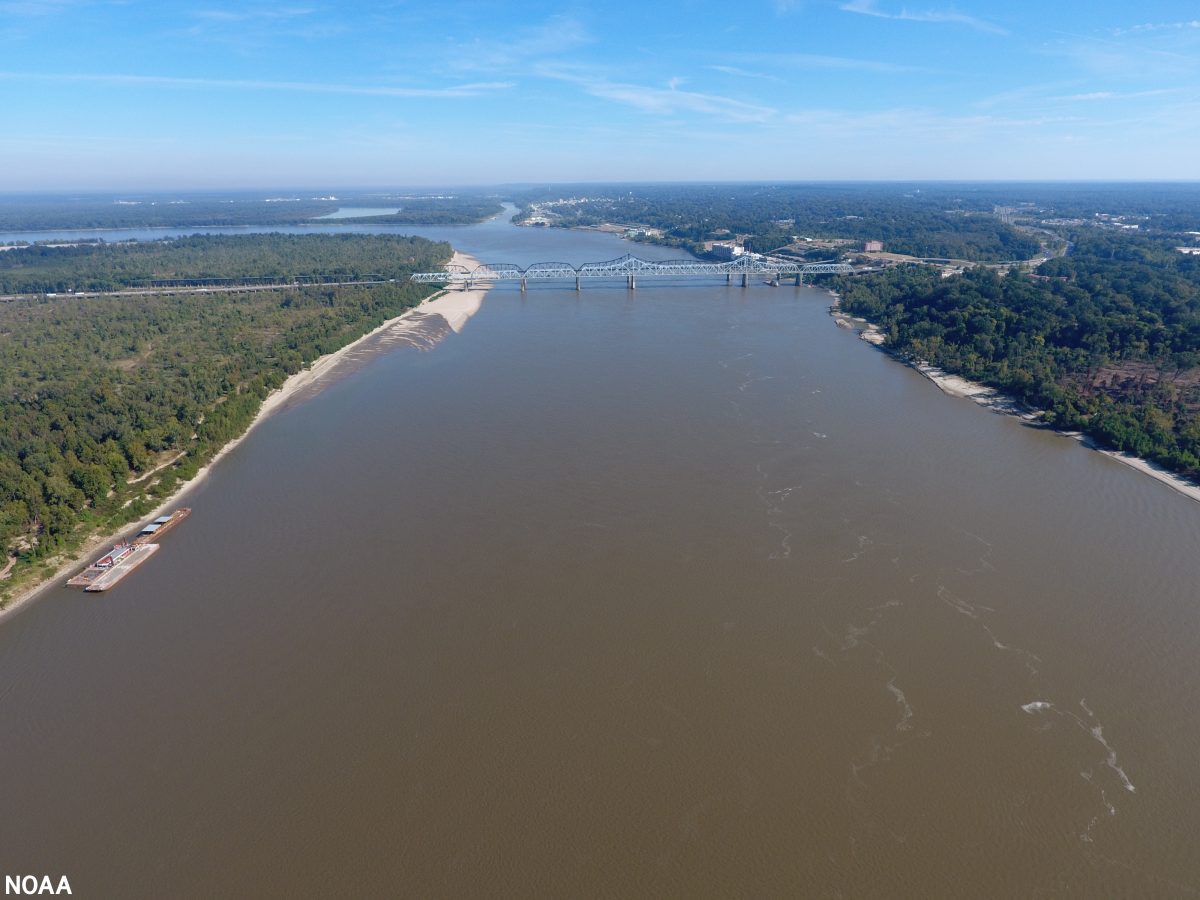The Mississippi River is one of the most endangered rivers in America for 2022 and several groups are asking Congress to protect it.
American Rivers, a national river conservation group, ranked the Mississippi sixth on its top ten list for the year. Pollution and habitat loss are the major threats to the river that runs through 10 states, according to the group.
The report says the Mississippi River is an “internationally important river ecosystem” and an “ecological lifeline” for North America. It provides “vital” habitat for more than 870 species of fish and other wildlife. It is also critically important to more than 325 bird species, dozens of migratory fish, and pollinating insects like the monarch butterfly.
The Mississippi River’s economic impact is $500 billion per year. It supports 1.5 million jobs.
The river is also a “crucial economic engine,” the report says. Agricultural economists have put the value at $400 billion annually. Closing the river would cost $295 million per day for shipping traffic, Gary Lagrange, CEO of the Port of New Orleans, told CBS News in 2019. American River’s report said its current economic impact is $500 billion per year. Manufacturing, tourism, and agriculture account for most of the nearly 1.3 million jobs provided by the river.
The report says nearly 20 million people live in the 123 counties that border the Mississippi River. It provides drinking water for more than 50 cities and towns. But the river is threatened, the report says, primarily by pollution and flooding.
Twenty million people live along the river. Fifty cities rely on it for drinking water.
Pollution is contaminating drinking water and causing toxic algae blooms in and along the Mississippi. For example, Des Moines, Iowa residents will pay $333 million over the next four years to remove nitrogen from their drinking water. Pollution in the river is delivered to the Gulf of Mexico where its has created a 6,000-square-mile “dead zone” that kills marine life. Microplastics and pharmaceuticals rise as new threats to water quality.
Flood damages are escalating, according to the report, thanks largely to climate change. Damages hit hardest in under-resourced communities, especially those comprised of people of color, the report says.
“Historically, white colonists segregated indigenous, immigrant, Black, poor, and other non-dominant social groups to the Mississippi River floodplains,” reads the report. “They bear the brunt of flooding and poor river management to this day.”
Flood damage hits hardest in communities of color and in low-income communities.
For all of this and more, a coalition of about 50 groups is calling for Congress to pass the Mississippi River Restoration and Resilience Initiative (MRRRI). It would coordinate and increase resources for restoration and resilience opportunities up and down the river.
For one, it would set aside about $300 million annually for federal, state, tribal groups, cities, and organizations for improvements in and along the Mississippi River. A quarter of that money would go to projects in in communities of color or low-income communities.
It would also set up a geographic program office within the Environmental Protection Agency (EPA) to do this. That office could work across state lines to better organize efforts by the many organizations working there.
Restoration and resilience programs on the Mississippi River are disjointed and poorly coordinated.
Olivia Dorothy, American Rivers restoration director
“At the moment, the restoration and resilience programs on the Mississippi River are disjointed and poorly coordinated,” said Olivia Dorothy, American Rivers restoration director.
The EPA already has such geographic program offices that serve the Great Lakes, Puget Sound, the Chesapeake Bay, and the Everglades.
The MRRRI bill is co-sponsored in the U.S. House by Rep. Steve Cohen (D-Memphis).
